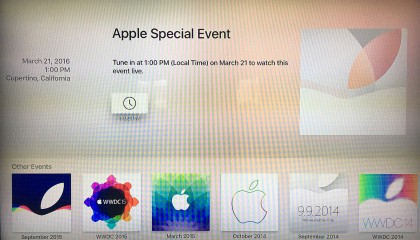Technically, the brief Apple filed yesterday is in support of their motion to vacate the FBI’s requested court order. It’s the latest salvo in the back and forth.
A few interesting excerpts:
The government’s assertion that “there is no reason to think that the code Apple writes in compliance with the Order will ever leave Apple’s possession” simply shows the government misunderstands the technology and the nature of the cyber-threat landscape.
This is followed by a quote from Apple Engineer Erik Neuenschwander:
I believe that Apple’s iOS platform is the most-attacked software platform in existence. Each time Apple closes one vulnerability, attackers work to find another. This is a constant and never-ending battle. Mr. Perino’s description of third-party efforts to circumvent Apple’s security demonstrates this point. And the protections that the government now asks Apple to compromise are the most security-critical software component of the iPhone—any vulnerability or back door, whether introduced intentionally or unintentionally, can represent a risk to all users of Apple devices simultaneously.
As to the government’s claim that the crippled iOS it wants Apple to build can only be used on one iPhone:
Mr. Perino’s characterization of Apple’s process . . . is inaccurate. Apple does not create hundreds of millions of operating systems each tailored to an individual device. Each time Apple releases a new operating system, that operating system is the same for every device of a given model. The operating system then gets a personalized signature specific to each device. This personalization occurs as part of the installation process after the iOS is created.
Once GovtOS is created, personalizing it to a new device becomes a simple process. If Apple were forced to create GovtOS for installation on the device at issue in this case, it would likely take only minutes for Apple, or a malicious actor with sufficient access, to perform the necessary engineering work to install it on another device of the same model.
And remember this Loop post from yesterday? Apple’s brief carries that familiar quote from Richard Clarke:
Every expert I know believes that NSA could crack this phone.
And this, on the back and forth between Representative Issa and FBI Director Comey in the Judicial Committee hearing:
Rep. Issa asking Director Comey a series of questions as to the avenues the FBI exhausted, to which the Director said he didn’t know, and Rep. Issa replying, “If you haven’t asked that question, the question is how can you come before this committee, and before a federal judge, and demand that somebody else invent something?”
There’s so much more to this (the brief is 33 pages of highlights, really). Apple’s legal team did an incredible job pulling all these different points of focus together into a compelling argument.
One last bit, from the conclusion, quoting Justice Louis Brandeis:
The greatest dangers to liberty lurk in insidious encroachment by men of zeal, well-meaning but without understanding.
Well said.

